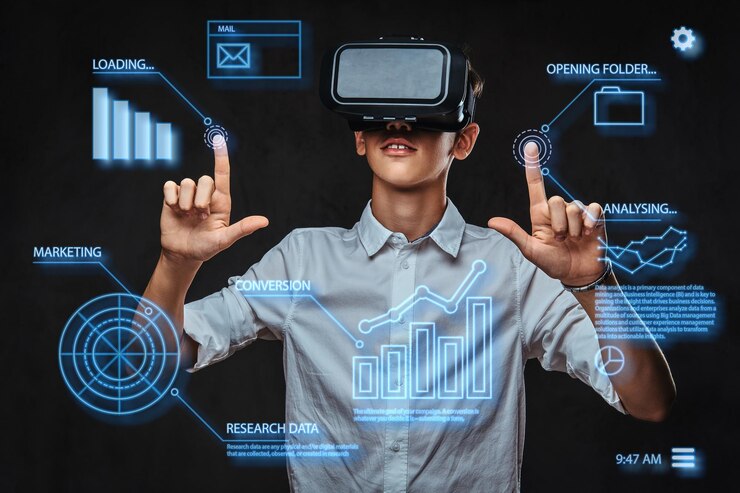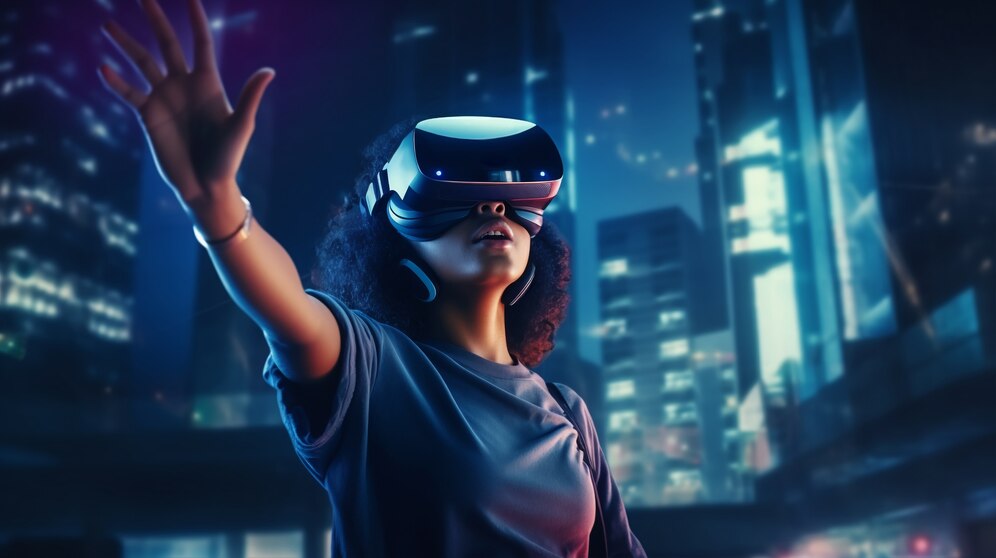
Introduction
The rapid advancement of technology has led to a wave of innovations transforming industries and daily life. Two of the most influential areas in this revolution are technology innovations and artificial intelligence (AI) applications. This article explores the latest trends in technology innovations and how AI applications are reshaping various sectors, providing a comprehensive overview of their impact, potential, and future prospects.
Trending Technology Innovations
1. Quantum Computing
Quantum computing is one of the most anticipated technological innovations, promising to revolutionize computing by solving complex problems faster than classical computers. Quantum computers use quantum bits (qubits) that can exist in multiple states simultaneously, allowing for unprecedented processing power. This technology has the potential to impact cryptography, material science, and complex system simulations.
Key Players:
- IBM
- Microsoft
Applications:
- Drug discovery
- Financial modeling
- Optimization problems
2. 5G Technology
The deployment of 5G technology is transforming communication networks by providing faster data speeds, lower latency, and increased connectivity. 5G enables new applications such as autonomous vehicles, smart cities, and enhanced mobile broadband experiences.
Key Players:
- Qualcomm
- Huawei
- Ericsson
Applications:
- Internet of Things (IoT)
- Augmented Reality (AR) and Virtual Reality (VR)
- Smart grids
3. Edge Computing
Edge computing brings data processing closer to the data source, reducing latency and bandwidth usage. This innovation is crucial for real-time applications such as autonomous vehicles, industrial automation, and smart cities.
Key Players:
- Amazon Web Services (AWS)
- Microsoft Azure
- Cisco
Applications:
- Real-time analytics
- IoT devices
- Autonomous systems
4. Blockchain Technology
Blockchain technology provides a decentralized and secure way to record transactions. Originally associated with cryptocurrencies, blockchain is now being used in supply chain management, healthcare, finance, and more.
Key Players:
- IBM
- Ethereum
- Ripple
Applications:
- Secure transactions
- Supply chain transparency
- Digital identity management
5. Internet of Things (IoT)
IoT involves connecting everyday objects to the internet, enabling them to send and receive data. This technology is revolutionizing industries by improving efficiency, reducing costs, and providing new insights through data analytics.
Key Players:
- Intel
- Siemens
- GE Digital
Applications:
- Smart homes
- Industrial IoT (IIoT)
- Connected healthcare
6. Augmented Reality (AR) and Virtual Reality (VR)
AR and VR technologies are enhancing user experiences by overlaying digital information on the real world (AR) or creating immersive digital environments (VR). These technologies are being used in gaming, education, training, and retail.
Key Players:
- Oculus (Facebook)
- HTC
- Sony
Applications:
- Immersive training simulations
- Virtual tours
- Enhanced gaming experiences
7. Biotechnology and Genetic Engineering
Advances in biotechnology and genetic engineering are leading to significant breakthroughs in healthcare and agriculture. Technologies such as CRISPR are enabling precise genetic modifications, leading to new treatments and improved crop yields.

Key Players:
- CRISPR Therapeutics
- Monsanto (Bayer)
- Illumina
Applications:
- Gene therapy
- Personalized medicine
- Genetically modified organisms (GMOs)
8. Renewable Energy Technologies
The push for sustainable energy solutions is driving innovations in renewable energy technologies such as solar, wind, and energy storage systems. These technologies are crucial for reducing carbon emissions and combating climate change.
Key Players:
- Tesla
- Siemens Gamesa
- First Solar
Applications:
- Solar power plants
- Wind farms
- Grid energy storage
Trending AI Applications
1. AI in Healthcare
AI is revolutionizing healthcare by improving diagnostics, personalized treatment plans, and operational efficiency. Machine learning algorithms analyze vast amounts of medical data to identify patterns and make accurate predictions.
Key Players:
- IBM Watson Health
- Google Health
- Philips Healthcare
Applications:
- Medical imaging analysis
- Predictive analytics for patient outcomes
- Personalized treatment recommendations
2. AI in Finance
AI is transforming the finance industry by enhancing fraud detection, risk management, and customer service. AI algorithms analyze financial transactions in real-time, identifying suspicious activities and predicting market trends.
Key Players:
- JPMorgan Chase
- Goldman Sachs
- BlackRock
Applications:
- Fraud detection
- Algorithmic trading
- Robo-advisors
3. AI in Retail
AI is enhancing the retail experience by providing personalized recommendations, optimizing supply chains, and improving customer service. AI-powered chatbots and recommendation engines are becoming standard tools for online and offline retailers.
Key Players:
- Amazon
- Alibaba
- Walmart
Applications:
- Personalized shopping experiences
- Inventory management
- Customer service chatbots
4. AI in Autonomous Vehicles
AI is the backbone of autonomous vehicle technology, enabling self-driving cars to navigate and make decisions in real-time. Machine learning algorithms process data from sensors and cameras to ensure safe and efficient driving.
Key Players:
- Tesla
- Waymo (Alphabet)
- Uber
Applications:
- Self-driving cars
- Autonomous delivery robots
- Fleet management systems
5. AI in Manufacturing
AI is transforming manufacturing by optimizing production processes, predictive maintenance, and quality control. AI-powered robots and analytics tools enhance efficiency and reduce downtime.
Key Players:
- Siemens
- General Electric
- ABB
Applications:
- Predictive maintenance
- Quality control
- Supply chain optimization
6. AI in Agriculture
AI is revolutionizing agriculture by providing insights into crop health, optimizing irrigation, and predicting yields. Drones and sensors collect data that AI algorithms analyze to improve farming practices.
Key Players:
- John Deere
- Bayer
- IBM
Applications:
- Precision farming
- Crop monitoring
- Yield prediction
7. AI in Cybersecurity
AI enhances cybersecurity by detecting and responding to threats in real-time. Machine learning algorithms analyze network traffic to identify anomalies and potential security breaches.
Key Players:
- Darktrace
- CrowdStrike
- Palo Alto Networks
Applications:
- Threat detection and response
- Anomaly detection
- Automated security protocols
8. AI in Education
AI is transforming education by providing personalized learning experiences, automating administrative tasks, and enhancing accessibility. AI-powered tools analyze student performance data to tailor educational content and support.
Key Players:
- Coursera
- Duolingo
- Knewton
Applications:
- Personalized learning platforms
- Intelligent tutoring systems
- Automated grading
9. AI in Human Resources
AI is streamlining HR processes by enhancing recruitment, employee engagement, and performance management. AI algorithms analyze resumes, predict employee success, and provide insights into workforce trends.
Key Players:
- Workday
- IBM
Applications:
- Resume screening
- Employee engagement analytics
- Performance management tools
Challenges and Ethical Considerations
1. Data Privacy
As AI and technology innovations rely heavily on data, ensuring data privacy and security is a significant challenge. Companies must comply with regulations and implement robust security measures to protect user data.
2. Ethical AI
The ethical use of AI is a critical consideration, with concerns about bias, transparency, and accountability. Developing fair and unbiased AI systems is essential to avoid reinforcing existing inequalities and ensuring ethical decision-making.
3. Job Displacement
The automation of tasks through AI and technology innovations can lead to job displacement. Reskilling and upskilling the workforce is necessary to prepare for the changing job landscape and ensure economic stability.
Future Prospects
The future of technology innovations and AI applications is promising, with ongoing advancements and new opportunities on the horizon. Continued investment in research and development, along with ethical considerations, will drive the growth and adoption of these technologies.
1. Enhanced Collaboration
Collaborations between academia, industry, and government will accelerate the development and deployment of technology innovations and AI applications. Public-private partnerships will play a crucial role in addressing societal challenges and driving technological progress.
2. Expanding AI Capabilities
Advancements in AI research will lead to more sophisticated and capable AI systems. AI will become more integrated into daily life, enhancing decision-making, automating tasks, and providing personalized experiences across various domains.
3. Sustainable Technology Solutions
The focus on sustainability will drive the development of technology solutions that address environmental challenges. Innovations in renewable energy, smart grids, and sustainable agriculture will contribute to a greener and more sustainable future.
Conclusion
Trending technology innovations and AI applications are reshaping industries and transforming society. From quantum computing and 5G technology to AI in healthcare and autonomous vehicles, these advancements hold immense potential. Addressing challenges such as data privacy, ethical AI, and job displacement will be crucial for realizing the full benefits of these technologies. As we move forward, continued collaboration, investment, and ethical considerations will drive the growth and adoption of technology innovations and AI applications, paving the way for a brighter and more technologically advanced future.
